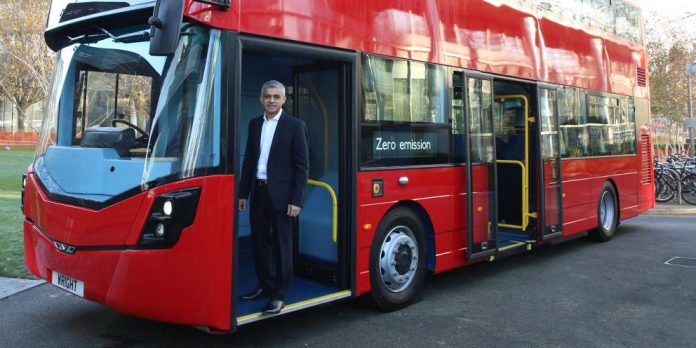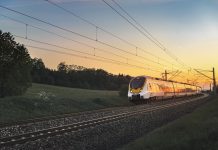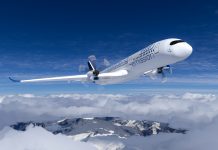London Mayor Sadiq Khan has today set out proposals to cut costs in the new Transport for London business plan, while also increasing capacity on the Tube network
A new five year Transport for London business plan aims to cut waste, freeze fares until 2020, phase out diesel buses, and extend the Bakerloo Line into south London.
Transport for London (TfL) will have to find savings of over £3bn through job losses and less expensive ways of working in order to fulfil the ambitions set out in the plan. The mayor’s flagship fare freeze alone will cost an estimated £640m over the next five years, the plans show.
TfL is already under pressure to make cuts of almost £600m a year by 2018, when its government operational grant will be lost, but the new plans set out today rely on savings of £800m a year.
Job cuts and renegotiated contracts to make up funds
However, the organisations expects to offset this with a projected 38% increase in revenues by 2021, partly thanks to the completion of the new Elizabeth Line. It will also make use of its property portfolio to try to raise £3.4bn by 2023, including freeing up land for building 10,000 new homes.
TfL is also planning savings of £40m through the loss of senior management posts over five years, £50m each year in reduced spending on consultants, and as much as £2bn by 2021 through renegotiated contracts and better deals with suppliers.
The Bakerloo Line is set to be extended to Lewisham by 2029, two years earlier than expected, and the Piccadilly Line will get new trains and signalling to boost capacity.
Vital for the future success of London’s economy
A total of £2.5bn will be invested to get more people cycling and walking – including the £770m cycling infrastructure investment announced on Monday – and to improve public safety and air quality. A new toxicity charge is proposed for central London, targeting the most polluting vehicles.
Also in the pipeline is the world’s first Ultra Low Emission Zone. Five Low Emission Neighbourhoods will be created as well as Low Emission Bus zones, and diesel buses will be phased out.
The plans reaffirm TfL’s commitment to reducing the number of pedestrians, cyclists and motorcyclists killed or seriously injured on the capital’s roads by 50% by 2020 – the first milestone in bringing road casualties to zero.
“The greatest city in the world must also have a genuinely world-class transport system, and this is vital for the future success of London’s economy,” Khan said. “Today sets out the scale of our ambition.”
The draft business plan will go before the TfL board next week.











